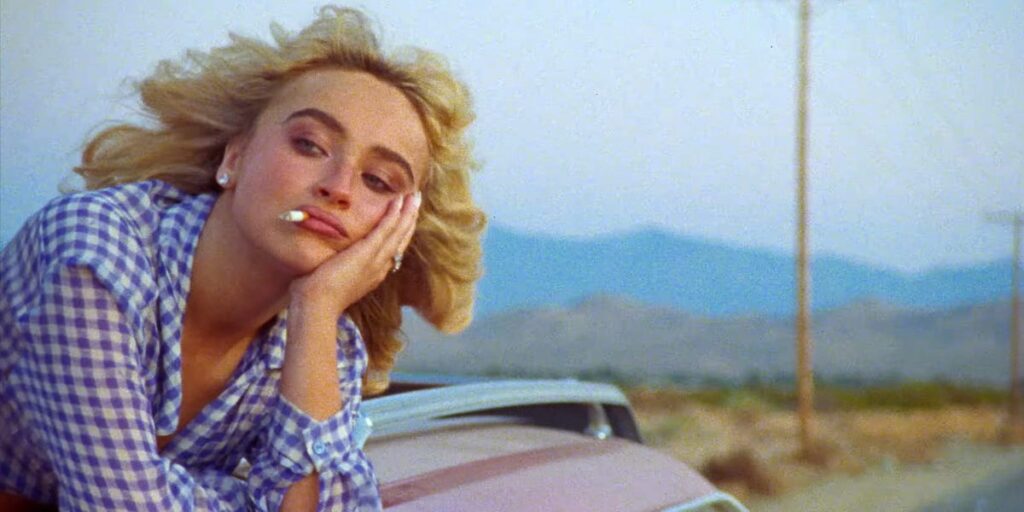It’s official: Pop fans are suffering through a dry spell.
By this time last year, we had already been treated to a veritable feast of summertime smashes and breakout stars.
Remember Shaboozey’s “A Bar Song (Tipsy),” which eventually tied the all-time record for most weeks at No. 1 on the Billboard Hot 100, Sabrina Carpenter’s “Espresso,” followed closely by her chart-topping “Please Please Please,” and Chappell Roan’s “Good Luck, Babe!” — not to mention the entirety of Charli XCX’s “Brat,” a zeitgiesty album if one ever existed, to the point where brands, politicians, and even world-renowned art centers were trying to capitalize on the fervor?
Even though we’re halfway through the year, most of the hits at the very top of the Hot 100 were produced last year. Brand new music is struggling to gain relevance, let alone hold onto it.
Alex Warren’s grandiose power ballad, “Ordinary,” is apparently the biggest song in the US right now. But much as its title suggests, “Ordinary” lacks friction, creativity, or any hint of a cool factor — crucial ingredients in the special sauce that propels a warm-weather bop to “song of the summer” status.
“Ordinary” has failed to capture the zeitgeist in any meaningful way; rather, it belongs to the same derivative, gospel-adjacent subgenre of pop that has also spawned hits like Benson Boone’s “Beautiful Things” and Teddy Swims’ “Lose Control.” This is the kind of music you hear a lot in the grocery store and the dentist’s office.
If “Ordinary” were being challenged by a massive hit, radio play probably wouldn’t be enough to sustain its No. 1 reign. So, yes, blame Warren’s dearth of competition — but there’s also something more eerie at work here.
Music executive Kayode Badmus-Wellington, who has over a decade of experience in A&R, calls it the “hangover effect.”
This year’s biggest hits sound stale
Newer songs in the Hot 100’s current top 10 include three tracks from Morgan Wallen’s latest album, “I’m the Problem,” and Carpenter’s June single, “Manchild.” You might assume these would be leading “song of the summer” contenders, but even market-tested hitmakers Wallen and Carpenter have yet to recreate their dominance from recent years. Wallen’s “What I Want,” featuring Tate McRae, debuted atop the chart but immediately fell from the summit in its second week. “Manchild” met the same fate.
A one-week reign at No. 1 usually signals that a song that can spark curiosity — of course, when it comes to A-listers, tons of people will listen to their new releases no matter what — but may not have the power to hold their attention. The issue is that neither “What I Want” nor “Manchild” offers anything fresh or particularly stimulating. Both songs rehash sounds and themes that Wallen and Carpenter have repeatedly explored.
(Carpenter said “Manchild” was actually written around the same time as her last album, 2024’s “Short n’ Sweet,” which explains why it sounds like a B-side. It doesn’t have the juice that “Espresso” did to become a lasting hit, or, perhaps more accurately, the caffeine boost.)
Badmus-Wellington described 2024 as “such a high” for pop music, spurred by blockbuster releases like Taylor Swift’s “The Tortured Poets Department” and Beyoncé’s “Cowboy Carter,” as well as fresh faces like Shaboozey and Roan. Fans were getting spoiled from all sides, so this year’s shortfall feels even starker by contrast.
“The big pop names have mostly fired their shots. The new wave hasn’t really announced itself with the same confidence or clarity this year,” he told Business Insider. “There are fewer group anthems. A lot of the current songs, they’re not necessarily made for the room. Last year’s hits felt very communal.”
Political chaos created an overstimulated audience
Pop music has always been cyclical; one could argue that 2025 is simply the ebb to 2024’s flow. However, the dramatic political vibe shift has also played a role.
Last summer, Charli XCX declared that “Kamala IS Brat,” a lesbian pop star enjoyed historic concert crowds, and Swift’s Eras Tour continued to gush with feminine joy and friendship bracelets. In January, President Donald Trump’s inauguration hastened the arrival of an era that looks and feels very different. The cultural consciousness is now dominated by mass deportation and multiple wars across the world.
“Regardless of people’s preferences in terms of politics, 2024 just felt so much more optimistic. That’s why you saw ‘Brat’ and the Kamala effect, and it all created an atmosphere that invited feel-good, confident music, and people just wanted relief and celebration,” Badmus-Wellington said. “Now, it’s just so distracting, because you have people’s rights being violated and threatened, and people are just so anxious in many ways. That’s leading back into the overstimulation of constant political noise.”
Overstimulation, paired with last year’s musical overindulgence, has led to a stupendous comedown. Not only are fewer superstars releasing albums, but audience attention is fractured. Badmus-Wellington said he’s noticed people retreating back into known comforts and nostalgia, listening to songs they already know and love, rather than exploring new releases or discovering new artists.
“Song of the summer” is a famously subjective term, but the warmest season is inextricably linked to group outings, from parties and beach days to road trips and picnics. As a result, songs that fit the bill are usually sing-along friendly, anthemic; like a rallying cry. This summer, it looks like fans haven’t found anything to rally behind — at least, not yet.
Read the full article here


